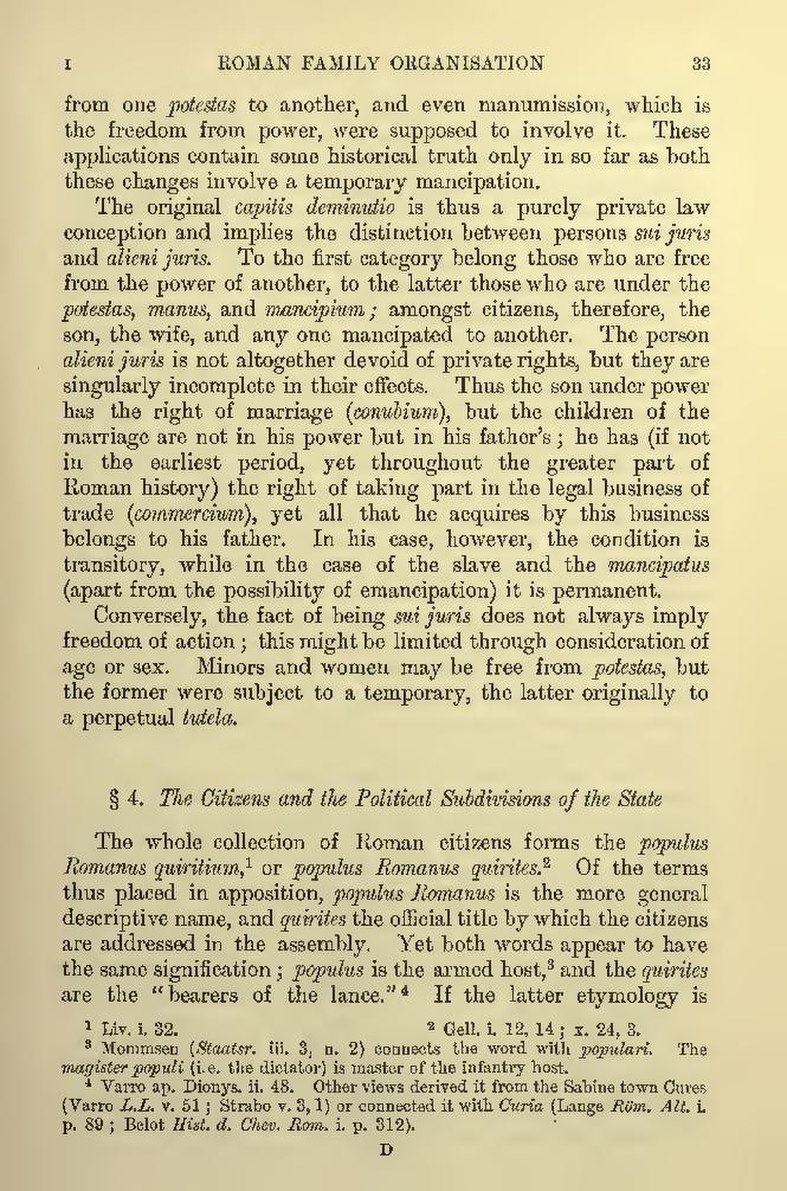from one potestas to another, and even manumission, which is the freedom from power, were supposed to involve it. These applications contain some historical truth only in so far as both these changes involve a temporary mancipation. The original capitis deminutio is thus a purely private law conception and implies the distinction between persons sui juris and alieni juris. To the first category belong those who are free from the power of another, to the latter those who are under the potestas, manus, and mancipium; amongst citizens, therefore, the son, the wife, and any one mancipated to another. The person alieni juris is not altogether devoid of private rights, but they are singularly incomplete in their effects. Thus the son under power has the right of marriage (conubium), but the children of the marriage are not in his power but in his father's; he has (if not in the earliest period, yet throughout the greater part of Roman history) the right of taking part in the legal business of trade (commercium), yet all that he acquires by this business belongs to his father. In his case, however, the condition is transitory, while in the case of the slave and the mancipatus (apart from the possibility of emancipation) it is permanent. Conversely, the fact of being sui juris does not always imply freedom of action; this might be limited through consideration of age or sex. Minors and women may be free from potestas, but the former were subject to a temporary, the latter originally to a perpetual tutela. § 4. The Citizens and the Political Subdivisions of the State
The whole collection of Roman citizens forms the populus Romanus quiritium,[1] or populus Romanus quirites.[2] Of the terms thus placed in apposition, populus Romanus is the more general descriptive name, and quirites the official title by which the citizens are addressed in the assembly. Yet both words appear to have the same signification; populus is the armed host,[3] and the quirites are the "bearers of the lance."[4] If the latter etymology is
- ↑ Liv. i. 32.
- ↑ Gell. i. 12, 14; x. 24, 3.
- ↑ Mommsen (Staatsr. iii. 3, n. 2) connects the word with populari. The magister populi (i.e. the dictator) is master of the infantry host.
- ↑ Varro ap. Dionys. ii 48. Other views derived it from the Sabine town Cures (Varro L.L. v. 51; Strabo v. 3, 1) or connected it with Curia (Lange Röm. Alt. i. p. 89; Belot Hist. d. Chev. Rom. i. p. 312).
